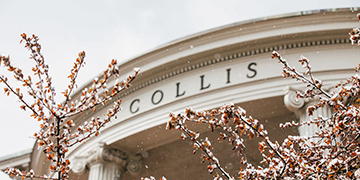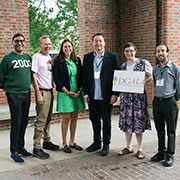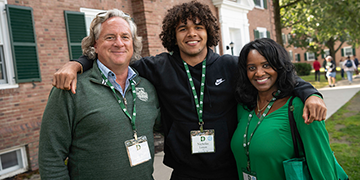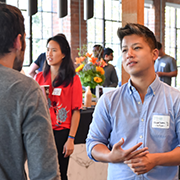“We want to make sure that people understand that they’re human beings, not human doings.”
Your Questions, Answered: Stephen Gonzalez
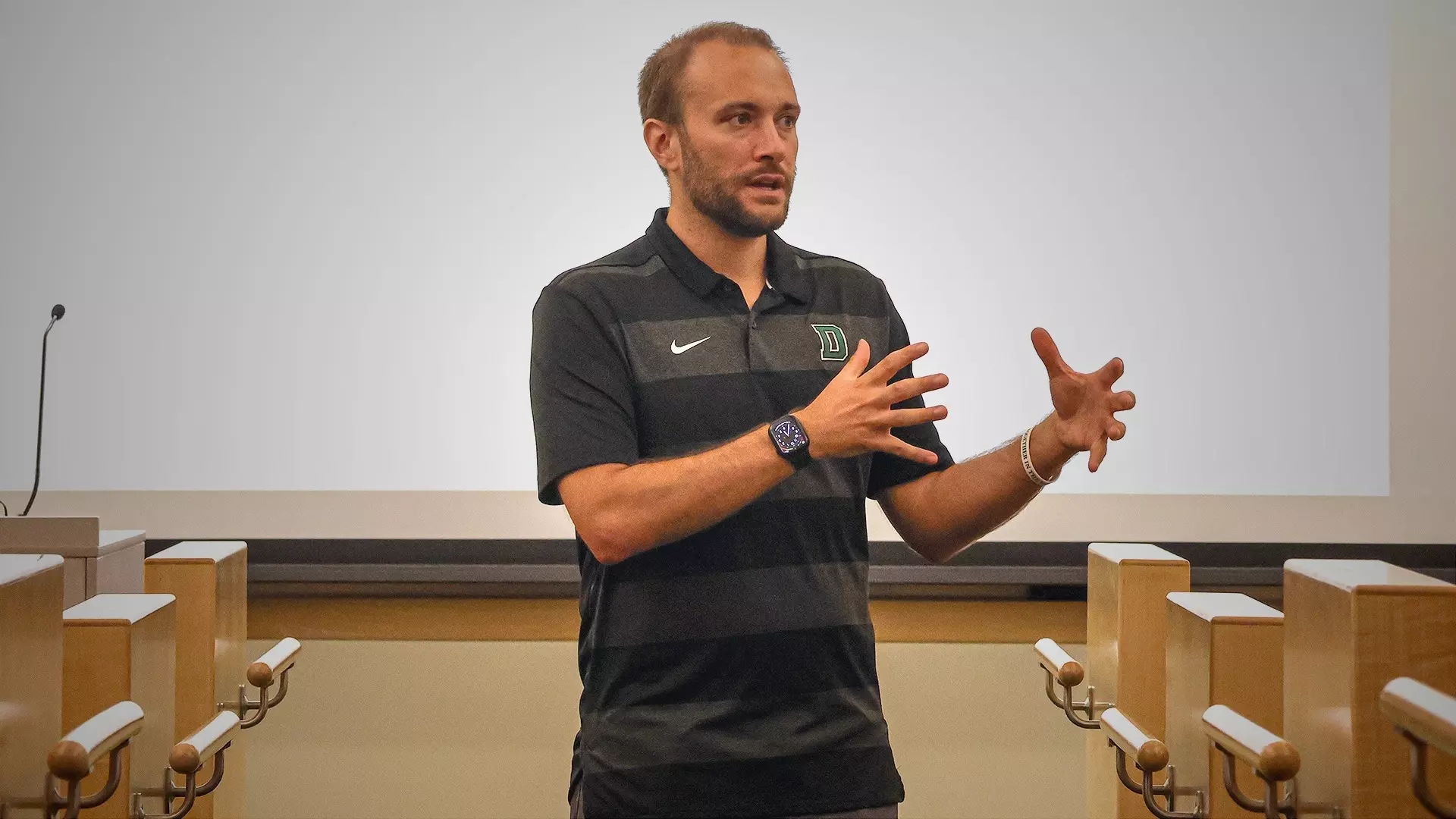
3 minute read
James Bressor
3 minute read
Your Question: How is Dartmouth supporting and ensuring the mental health and well-being of varsity athletes?
Answered by Stephen Gonzalez, Corrigan Family Assistant Athletics Director for Leadership and Mental Performance
At Dartmouth, we want athletics to be an additional educational vehicle on campus. We view it as a cocurricular activity, not an extracurricular activity, because our athletes gain some incredible life lessons in practice and in competition that they can apply in the classroom and in their post-Dartmouth careers. For example, student-athletes often deal with added stress as part of their athletic performance. There’s a level of questioning themselves and their abilities in those competitive moments. That can be a scary thing, but it can also be incredibly uplifting, because they’re able to overcome doubt, fear, and anxiety to perform at their best.

Athletics creates opportunities to lean into the emotional management and regulation of those fears and anxieties, and developing mental skills such as resiliency and overcoming doubt requires learning how to mentally prepare for what you think might happen, and then responding in a constructive and productive way. This is proactive mental health training.
Mental wellness is very important to us: Dartmouth Peak Performance (DP2) supports our student-athletes’ mental health and wellness at the same priority level as their physical health and fitness.
In fact, Dartmouth is one of the only universities in the United States that offers both clinical and preventive mental health and wellness for our student-athletes. We care for individuals who may have mental illnesses, such as substance abuse, disordered eating patterns, or clinical depression, for example.
But what is unique about Dartmouth is that we also provide support for preventive mental health: we work with student-athletes who generally feel well, but might be having issues with performance, anxiety, or around their confidence to accomplish certain things—or their definition of success narrows to the point where it’s causing them to not enjoy their sport. If we get ahead of some of these issues, we can potentially prevent clinical issues from arising.
At least one member of every coaching staff and all our student-facing staff members are trained in mental health first aid, which elevates our awareness of the signs and symptoms of mental health issues that may arise and helps us understand how to help that individual and connect them to resources.
Our goal is to make sure that people understand that they are human beings, not human doings—that while our student-athletes have a strong sense of athletic identity, they also are students who care about science, or math, or politics, or education, or whatever area they’re interested in.
One of the most attractive things about Ivy League athletics in general and Dartmouth in particular is that we want our students to be more than “just” athletes—we want them to be scholars. We want them to be people who can pursue their interests in concert with athletics. We don’t want our students to have to choose. So, when student-athletes come to Dartmouth, we foster their athletic identity, but we also want to make sure that they develop a more comprehensive sense of themselves.


